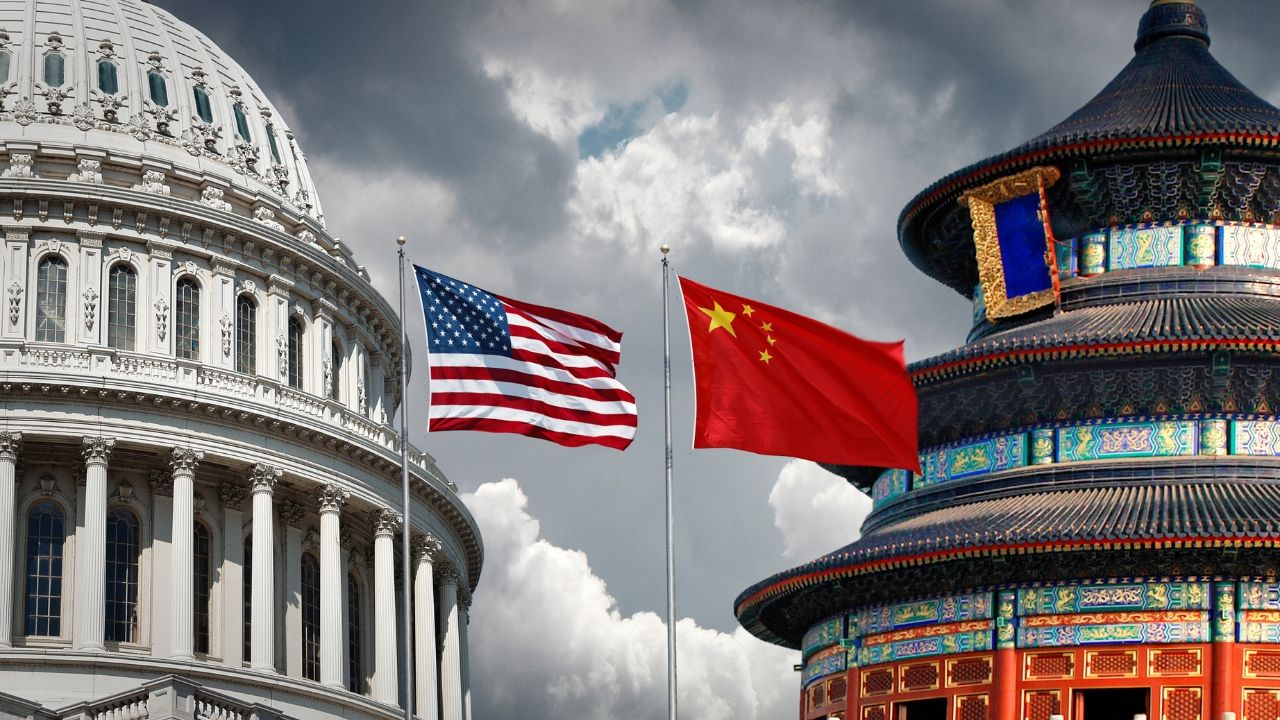
More Parents Want Their Children to Learn Mandarin in a Shifting Global Landscape
Apr 20, 2025
With all the talk of trade tensions and tariff disputes between China and the United States, many parents are starting to think more seriously about the skills their children will need in the future. One clear trend is emerging: more and more families are choosing Mandarin Chinese as a key language to learn.
This isn’t just about following a trend. It’s about recognising that China’s role on the world stage is growing, economically, politically, and culturally. As global dynamics shift, parents are looking ahead, making practical decisions to help their children stand out and succeed.
China’s Growing Global Power: Why It Matters
China isn’t just the “factory of the world” anymore. It’s now a leader in technology, diplomacy, and culture. Here are just a few examples:
-
China is the world’s second-largest economy, and could overtake the US in the years to come.
-
It’s at the forefront of AI, green energy, 5G, and e-commerce.
-
Its international trade efforts, like the Belt and Road Initiative, are building ties with countries across Asia, Europe, and Africa.
-
And let’s not forget, Mandarin is the most widely spoken native language in the world.
In short, China is becoming a central player in global affairs and learning Mandarin helps young people keep up.
The Tariff War and Its Ripple Effect
Tensions between China and the US have been making headlines for years. While the focus is often on tariffs and trade, there’s a bigger picture at play: a shift in global power.
Parents are seeing how:
-
Western economies are increasingly tied to Chinese markets.
-
International businesses are focusing more on Asia-Pacific partnerships.
-
Employers are looking for people who can speak Mandarin and understand Chinese culture.
For many families, this isn’t just news, it’s a nudge to make sure their children are ready to thrive in a more global, multilingual world.
Why Parents Are Turning to Mandarin
Preparing for the Future
In careers like business, tech, law, and diplomacy, being able to speak Mandarin can give candidates a serious edge. It shows global awareness, opens up new opportunities, and can even lead to jobs that might not be accessible otherwise.
Learning a language like Mandarin takes time. That’s why starting in childhood is ideal, it gives young learners the chance to build fluency gradually and confidently.
Building Cultural Awareness
Learning Mandarin isn’t just about words and tones. It’s also about exploring one of the world’s oldest civilisations. Children who engage with Chinese culture through stories, celebrations, and traditions develop:
-
A wider world view
-
Respect for different ways of life
-
Curiosity about global issues
These are the building blocks of true global citizenship.
Boosting Brainpower
Mandarin gives the brain a real workout! It helps children develop:
-
Stronger visual memory through character recognition
-
Better listening skills through tonal awareness
-
Improved pattern recognition and problem-solving through grammar differences
Parents often say they’ve noticed improved focus, confidence, and even stronger academic results in other subjects.
Real Parent Voices
“With everything happening between China and the US, we just felt it made sense to prepare our daughter for both worlds. Mandarin opens doors.” , Parent in West London
“It’s not just about politics, it’s about where the world is heading. Mandarin is part of that, and we want our son to have every chance to succeed.” , Parent in Manchester
“Our school introduced Mandarin through songs and stories. Now our child teaches us words at dinner!” , Parent in Bristol
How Schools Can Support This Growing Interest
As more parents ask about Mandarin, many schools are starting to:
-
Add Mandarin to their PPA (Planning, Preparation and Assessment) provision
-
Run after-school clubs and themed enrichment days
-
Partner with Mandarin specialists for curriculum-aligned lessons
Schools that offer Mandarin aren’t just ticking a box, they’re showing that they’re forward-thinking, inclusive, and globally minded.
FAQs , People Also Ask
Isn’t Mandarin too hard for children?
Not at all. With the right approach - using songs, stories, and movement, children pick it up naturally, just like any other language.
Will Mandarin still matter in 10 or 20 years?
Yes! All signs point to China continuing to play a big role in world affairs, which means Mandarin will only become more important.
What’s the best age to start learning Mandarin?
Early childhood is ideal. Children aged 2 to 11 can pick up tones, pronunciation, and vocabulary with ease and hold onto it long term.
How can I help bring Mandarin into my child’s school?
Start a conversation with your headteacher or language coordinator. You can also suggest working with a trusted provider like Mando School, who specialise in immersive Mandarin teaching for primary pupils.
A Smart Move in a Changing World
We’re living in unpredictable times, but one thing is clear: China’s influence is growing. Learning Mandarin is a smart, future-focused choice that helps children build confidence, broaden their horizons, and get ahead in life.
For parents, it’s no longer just a nice-to-have, it’s a meaningful investment in their child’s future.
Interested in helping your child get started with Mandarin?
Book a free consultation or trial session with MANDO SCHOOL today.
👉 Book Now
Give your child the gift of language. Let them connect with the world in Mandarin.
Stay connected with news and updates!
Join our mailing list to receive the latest news and updates from our team.
Don't worry, your information will not be shared.
We hate SPAM. We will never sell your information, for any reason.

